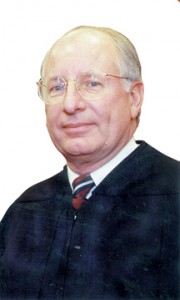
Later, as an adult, Bode was convicted four times for OVI between 1996 and 1999.
Typically, an OVI violation is a first-degree misdemeanor. But in 2011, Bode was convicted of OVI offenses that became felonies under a law that enhances the OVI penalty. The law states: “An offender who, within twenty years of the offense, previously has been convicted of or pleaded guilty to five or more violations of OVI is guilty of a felony of the fourth degree.”
The state added Bode’s 1992 juvenile OVI to his four adult convictions to reach the “five or more” offenses threshold required for the 20-year look-back enhancement.
In response, Bode sought to suppress the evidence, claiming that his 1992 uncounseled juvenile adjudication violated his constitutional right to counsel and that the state could not, therefore, use that conviction to reach the new enhancement threshold. But the trial court overruled the motion to suppress.
Bode was convicted and sentenced to a total three-year mandatory prison term, plus 54 months of confinement suspended, with five years of community control. His sentence also included a lifetime driver’s license suspension, forfeiture of his vehicle and a $2,700 fine.
Bode appealed, but the court of appeals affirmed. After that, his case came before us – the Ohio Supreme Court.
The enhancement law in question refers to a person who “previously has been convicted of or pleaded guilty to” OVI offenses. Even though juvenile cases are civil rather than criminal and juveniles are adjudicated delinquent rather than found guilty, Ohio law says that an offender’s juvenile adjudication for delinquency is a conviction “for purposes of determining the sentence to be imposed for a later offense.”
Thus, juvenile adjudications can be counted under the five-convictions threshold of the enhancement law. Bode acknowledged his 1992 adjudication of delinquency, but challenged its later use because he had no attorney and hadn’t waived the right to an attorney.
So, the question before us was this: Did Bode have a right to counsel even though his juvenile disposition did not subject him to confinement?
Nearly 50 years ago the United States Supreme Court held that due process demands that juveniles have the right to counsel during delinquency proceedings. This right to counsel attaches in any juvenile case in which imprisonment is possible.
The Ohio legislature has acknowledged the importance of counsel in juvenile proceedings by passing laws establishing a juvenile’s constitutional right to appointed counsel. Our court has held that this right to counsel may be waived.
Our court has also held that the state may not automatically use a prior uncounseled conviction of an adult to enhance a later OVl violation and that when the issue is raised, the state must prove that a valid waiver of counsel was made. As Justice Lanzinger stated in our majority opinion, “This rule must apply to juveniles as well.”
The state argued that the right to counsel does not attach unless the defendant was subjected to actual confinement, and since Bode wasn’t confined, his 1992 adjudication could be used to enhance his later offenses. But the United States Supreme Court has held that the due-process right to counsel attaches to all juvenile proceedings that pose a threat of confinement.
The state wanted to limit the right to counsel to cases in which an offender has received a sentence of confinement. lt argued that Bode wasn’t really confined in 1992 by emphasizing that he did not receive a suspended sentence and was not notified of any consequences for failing to successfully complete the program or follow-up.
The state noted that Bode was referred to a treatment program primarily intended to educate attendees by offering educational films, lectures and group counseling. He wasn’t fingerprinted or photographed; no uniformed officers were present, the program had an “open door” policy and attendees were never kept behind locked doors. They could – and sometimes did – choose to leave the program early.
In short, the state says this was not a sentence of confinement that would give rise to a right to counsel. But we concluded that whether jail was actually imposed as a disposition is irrelevant. It’s the potential sanction that matters.
We recognized that the United States Supreme Court – construing the federal constitution – limits the right to counsel to cases in which actual incarceration is imposed. But states have the ability to grant greater rights than those provided by the federal Constitution. In Ohio, we have already looked to the possibility of confinement as the factor that determines whether counsel is necessary.
Although Bode would have committed what would have been a misdemeanor had he been an adult in l992, he still faced the possible penalty of confinement. He was entitled to an attorney “at all stages of the proceedings.”
Bode did not have an attorney before he was adjudicated delinquent in 1992, and there’s no evidence that he voluntarily chose to give up the right to an attorney. Ohio law provided that Bode was entitled to an attorney, and his uncounseled adjudication amounted to an unconstitutional violation of his due-process rights.
We concluded that due process protects the right to counsel for juveniles at every stage of the proceedings. Furthermore, the possibility of confinement for a juvenile adjudication requires waiver of the right to counsel before the adjudication may be validly used to enhance another sentence at a later date.
And – just as for adults – we concluded that for juveniles, the state may not use a prior, uncounseled delinquency adjudication to enhance a sentence for a later OVl violation if the right to counsel was violated because a waiver was not obtained.
Therefore – by a four-to-three vote – we reversed the court of appeals’ judgment and sent the case to the trial court for resentencing.
